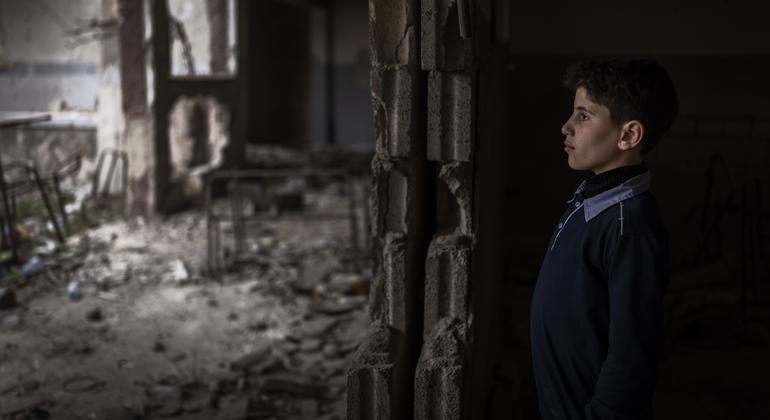The promises were made at the opening of the Financing For Development Conference (FFD4), currently underway in the Spanish city of Seville, when the delegates agreed Seville engagement.
During the conference, the UN News spoke to Li junhuaThe United Nations Under-Secretary General for Economic and Social Affairs and Secretary General of the International Summit.
Li Junhua: The adoption of the Seville agreement was an exceptional moment during an event which experienced around sixty heads of state and government and saw 130 major initiatives announced within the framework of the Sevilla platform for actionwhich aims to implement the result document and the financing of the turbochang for sustainable development.
A record number of business leaders from various sectors has actively participated and contributed positively to the entire process and the results of the conference. They all undertook to support the implementation of the new roadmap.
UN News: What advantages do you think that vulnerable communities in developing countries can impatiently wait, as a direct consequence of decisions made here in Seville?
Li Junhua, Under-Secretary General of the United Nations for economic and social affairs.
Li Junhua: Seville’s commitment firmly recognizes that the eradication of poverty is essential for the realization of sustainable development. This is the most essential point for all developing countries. It offers a set of shares for a large -scale investment thrust for the Sustainable development objectives (SDD) in the long term. This includes strengthening investments in vital fields such as social protection systems, agrifood systems and inclusive, affordable and quality health systems.
In addition, it aims to strengthen the global response to crises that most affect vulnerable communities. For example, he calls for the implementation of the decision concerning the agreed climate financing of the United Nations Climate Conference in Baku, as well as the fund to respond to loss and damage.
For me, significant stages and commitments have been made to support countries in special situations in order to fill the significant infrastructure gap in the critical sectors. The most vulnerable populations can benefit significantly by obtaining essential services and employment opportunities generated by, for example, energy, transport, ICT [information and communication technology]development of water and sanitation infrastructures.
Finally and above all, there is a strong determination to extend access to financial products and services in society, especially for women, young people, disabled people, displaced people, migrants and other people in vulnerable situations. These are very tangible results for vulnerable communities.
News from the UN: How is this conference a real multilateralism test, at a time when it is more than ever to pressure than ever, and with a deeply uncertain global economic perspective?
Li Junhua: This conference is a critical test of our ability to solve problems together.
We know that, at the base, the sustainable development crisis is a crisis of financing and financing. We have to take up these challenges to bring the SDGs back on the right track, but it is far from easy. Commitments to development financing have a direct impact on national budgets and the reform of international financial architecture will inevitably move the dynamics of power between states.
The fact that the Member States have adopted the Seville agreement by consensus sends a powerful signal that multilateralism can still deliver. Of course, the real challenge now lies in the translation of these commitments into actions. I would therefore say that in the end, the success depends on the collective efforts of all the Member States and all stakeholders.
Originally published at Almouwatin.com








